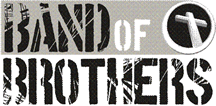Steve Bartman grew up in Chicago, coached little league and was a lifetime Cubs fan. He was sitting in a front row seat along the left-field line in Wrigley Field watching game six of the 2003 National League playoff. The Cubs were leading the Marlins 3-0 and were ahead in the series three games to two. They were five outs away from reaching the World Series for the first time since 1945, and possibly winning it for the first time since 1908.
 The Marlin batter hit a long pop foul ball in Bartman's direction. Cubs left fielder Moises Alou was in position to attempt a catch, but Bartman, who was watching the ball and not the fielder, blocked the ball from Alou's glove. Alou slammed his glove down in frustration, and the Cubs argued for an interference call. The umpire ruled no interference and the game continued.
The Marlin batter hit a long pop foul ball in Bartman's direction. Cubs left fielder Moises Alou was in position to attempt a catch, but Bartman, who was watching the ball and not the fielder, blocked the ball from Alou's glove. Alou slammed his glove down in frustration, and the Cubs argued for an interference call. The umpire ruled no interference and the game continued.
The Chicago fans watched in horror as the Cubs defense disintegrated. After several Cubs errors, the Marlins ended the inning with eight runs, eventually winning the game and forcing a seventh game in the series. Bartman had to be led away from the park under escort for his own safety. Many other fans attempted to throw garbage at him and Bartman had to shield himself with his jacket. Some Cubs fans blamed Bartman for the Cubs losing this game and, ultimately, their chance at reaching the World Series (which the Marlins went on to win).
For months after the incident, Bartman's name was used as the butt of jokes on late night television and spoofed on multiple sit coms. The name "Bartman" eventually found its way into the baseball lexicon describing any fan that interferes with play during a game.
Disappointment is a powerful and potentially destructive emotion. Unmet goals, unrealized dreams and dashed expectations can take their toll on us, sapping our strength and energy, even leading to despair. Years ago I came across a poem by Edith Young that helped me put my disappointment in the right context. I want to share it with you.
"Disappointment -- His Appointment"
Change one letter, then I see
That the thwarting of my purpose
Is God's better choice for me.
His appointment must be blessing,
Tho' it may come in disguise,
For the end from the beginning
Open to His wisdom lies.
"Disappointment -- His Appointment"
Lord, I take it, then, as such.
Like the clay in hands of potter,
Yielding wholly to Thy touch.
All my life's plan in Thy moulding,
Not one single choice be mine;
Let me answer, no regretting --
"Father, not my will, but Thine."
Shoulder to shoulder,
Gregg

